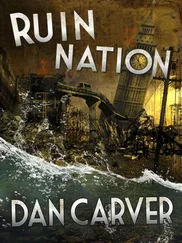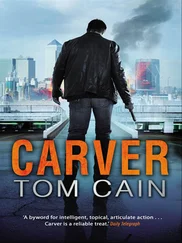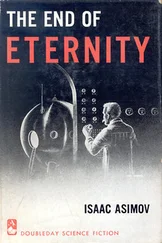Legroeder shook her hand. “Pleased to meet you. And—thanks, I guess. Will you think I’m ungrateful if I ask, Who are you? ”
She smiled. “I may be your only friend at the moment. If you would consent to join me for breakfast, I’d be happy to explain. I’ve been over your release forms, and they’re all in order.”
Legroeder stared at her. “Are you a lawyer or something?”
Mahoney adjusted her glasses. “That is correct. It’s my understanding that you need a lawyer. Yes?”
“Well—”
“I’ve posted your bond, and you’re free to leave. You’re prohibited from leaving the planet, however, pending your hearing with the Spacing Authority. Is that satisfactory to you?” She peered intently over the tops of her glasses.
Legroeder shrugged. “Do I have any choice?”
Mrs. Mahoney’s eyes twinkled. “None that I can see. Shall we get out of here and have breakfast?”
Legroeder pursed his lips. “Can I visit a friend in the hospital first?”
* * *
He gazed down at Maris for a long time. She lay motionless in the hydro-bed, the scars on her face and neck not looking much better under the clear bandages than they had when he’d first brought her in. But it wasn’t the scars that bothered him; it was the stillness. Whatever had most damaged her was invisible. According to the doctors, her basic physiological signs were strong; but with the raider implants controlling certain basic cortical functions, they couldn’t predict when—or if—she’d return to consciousness. “We just don’t have much experience with these augmentation devices,” one of the doctors said. “It’s hooked so deeply into her autonomic nervous system that we don’t dare meddle with it—not without knowing more. But if there’s no activity in a week or so, we’ll try some cortical stimulation and see what happens.”
Legroeder touched Maris’s forearm. Fellow prisoner. Comrade in arms. He knew little about her life before her capture by the pirates. She was taken from a ship he didn’t know the name of. They’d served together a few times on raider missions. But really… it was those two or three minutes on the maintenance dock, when they’d made the decision to trust each other, that had bound them together. He gripped her limp hand and leaned close to her ear. “You did well, Maris. We’re out. We’re away from the pirates. You’ll be free, just as soon as you pull yourself out of this. Just one more escape.” He hesitated. “I have to go and… do some things. Try to clear up a mess. I’ll be back… as soon as I can.”
He straightened with a sigh. Rejoining Harriet Mahoney in the hallway, he walked out of the hospital, into the late morning sun.
* * *
Harriet turned out to have a good knowledge of coffee shops in the area, and they settled on one that featured a holosurround of a desert, complete with spike bushes, umbrella trees, and a proliferation of desert flowers. A spring ran past their table—real rock and real water—and for the first time in years, Legroeder had the feeling that if he stayed in this place long enough, he might conceivably begin to relax. Or he might, if he weren’t bristling with questions. He held most of them long enough to wolf a plate of waffles and drink a mug of—not just real coffee, but good coffee. He had forgotten what the aroma of good coffee was like, filling the air around his head.
Finally he said, “Mrs. Mahoney—or should I call you—?”
“Harriet,” she said, resting her teacup in its saucer. “Please. I hate formal names. They make me feel old.”
“All right. Harriet. Is there a Mr. Mahoney?”
“There was. He passed away almost twenty years ago.”
“I’m sorry.”
A smile twitched at her lips. “Don’t be. I think he was glad to get away from me. I was a hard person to live with, back then. Probably still am.” She chuckled. “And tell me, how do you prefer to be addressed, Rigger Renwald Legroeder?”
“No ‘Rigger’ anymore, it looks like.” He grunted, feeling a surge of anger. “Just Legroeder.”
“Then Renwald is your surname?”
He shook his head. “Legroeder is just what people have called me since I was about five. My friends, I mean.”
“Very well, then—Legroeder. You’d like to know why I bailed you out.” Harriet reached up to her right ear, as though to adjust her earring. A holo a dozen centimeters high sprang up on the table between them. It was a boy, six or seven years old, sitting on a lawn with a pet Althasian minibear. The boy was smiling and waving at the camera. “Have you ever seen this young man?” Harriet asked, and for the first time since they had met, Legroeder heard a tremor in her voice.
Legroeder bent to study the image. “Should I have?” He looked up at Harriet. “He looks a little like you. A relative?”
“My grandson,” she said. “My only grandson. He was a passenger on the Ciudad de los Angeles when she was lost.” Her voice caught. “When you were attacked by the pirates.”
Legroeder’s throat tightened as Harriet gazed somberly at the holo. “His parents were separated, you know. His father—my son—was killed in a building collapse here in Elmira. Bobby was on his way to join his mother on Thrice Varinorum. On the L.A .” Harriet touched her earring again, and the image disappeared. “For years, we didn’t know anything, except that the ship had failed to arrive, and was presumed lost.”
Legroeder said nothing.
“Until two years ago, when we first heard that the L.A . had been taken captive… by the gentlemen pirates of Golen Space.”
Legroeder laughed hollowly. “Gentlemen?”
Harriet reached for her teacup, but her hand started shaking, and she pulled it back. “By the murdering, cutthroat bastard pirates of Golen Space,” she whispered.
Legroeder closed his eyes, willing the memories away.
“I’m sorry,” Harriet said. “You suffered, too. I can see it in your eyes. Are you sure you never saw Bobby? You have no idea what might have happened to him?”
Legroeder shook his head. “I never really saw the passengers, even during the flight. And after we were taken prisoner, they split most of us up. I don’t even know what happened to most of my crewmates. I just never saw them again.”
Harriet’s gaze narrowed. For some reason he suddenly felt uncomfortable under her scrutiny. He squinted past her, across the broiling desert that landscaped the coffeehouse. “Not even Jakus Bark?” she asked.
“Jakus?” Legroeder started at the name, and blinked down at the table, and a holo of Jakus Bark, the keel rigger who’d been in the net with him at the time of the pirate attack. But in this picture, he looked… older. “Where did you get this picture?” Legroeder demanded.
“I’ll tell you in a moment. May I ask, when did you last see Rigger Bark?”
“Well, I—” Legroeder’s voice caught, as he remembered being marched off the bridge of the L.A . with the other riggers. Jakus had been visibly shaking with fear; he’d looked even more scared than Legroeder was. Legroeder cleared his throat. “We were both pulled off the L.A ., onto the raider ship. But we were taken into separate holds.”
“Did you see him again?”
“Just once. A few weeks later, I guess. At the raider outpost. We’d been going through nonstop indoctrination, telling us if we wanted to live we had better learn to cooperate.” Legroeder swallowed, feeling the familiar pain. “In the case of the riggers, that meant flying their ships for them.” He struggled to put words to the memory. “Jakus—that one time I saw him—I got the feeling he’d adapted more than most. I was still pretty resistant—not outwardly, but in here.” He tapped his chest. “But Jakus… wasn’t . He didn’t seem as angry as the rest of us. After that, I never saw him again.”
Читать дальше












